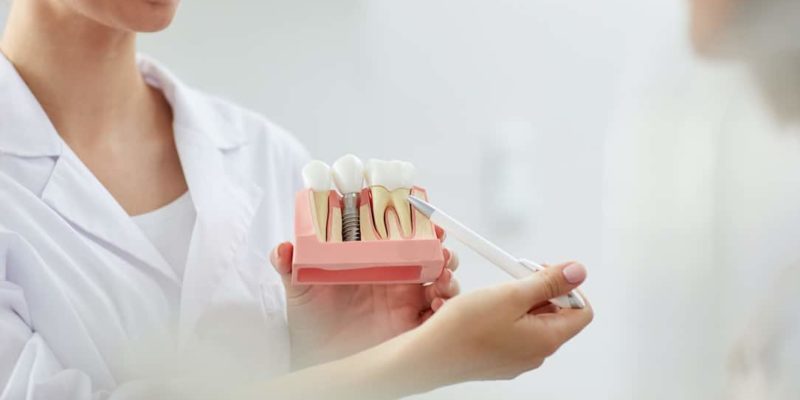Replace Missing Teeth with Dental Implants

Dental implants are a restorative dentistry option that allows patients to replace missing teeth with ones that look, feel, and perform just like your natural teeth. They are the most effective, predictable, and long-lasting option to replace one or several missing teeth. If you have missing teeth, Dr. Ania can restore your smile with dental implants.
What are Dental Implants?
In restorative dentistry, we use dental implants to help patients replace their missing teeth with ones that look, feel, and perform like their natural teeth. They are the most effective, predictable, and longest-lasting option to replace one or multiple missing teeth. Unlike a bridge, the implant allows us to treat only the tooth that needs to be treated; there is no need to involve other healthy teeth in the restoration of the unhealthy tooth.
Who Benefits from Dental Implants?
If a patient suffers from periodontal disease, dental implants can be used to assist in rehabilitating the mouth. For patients where dentures, implants can help significantly with comfort and quality of life.
The ideal candidates for dental implants are those who have generally good oral and overall health. Additionally, the patient will need to have adequate bone in your jaw to help support the implant. The American Academy of Periodontology explains that dental implants are typically the best option for those who have lost a tooth or teeth due to periodontal disease, injury, accident, or other reason.
What is the Procedure Like?
When you and Dr. Ania decide that dental implants are the best option to restore your smile, you will then begin the process of getting dental implants. These implants are made of a metal post topped by an artificial tooth. Colgate explains that the implant is installed into the gums to keep the structure of the remaining teeth and allow you to continue chewing and biting as normal.
Further, they explain, this surgery replaces the root area of the missing teeth with metal screw-like posts, which is where the artificial tooth will be placed. The artificial teeth closely resemble your natural teeth, acting just the same and prevent you from needing less-real options, like dentures, or having bridgework done.
Having this procedure done might need to be completed in multiple steps, depending on your oral health and the type of implant you’re receiving. Colgate provides a brief overview of what you can expect:
- Removal of the bad tooth
- Jawbone is then prepared for surgery, which might include bone grafting
- Once the jaw has time to heal, the implant can go into the gum line
- The jaw will have more time to heal before the abutment (which is the part that screws into the implant) and attaches the artificial tooth on top, marking the end of your implant procedure
Risks of Dental Implants
As with any procedure, there are things that go into making sure that you have success with it. For implants, there are many different factors that can affect your ability to receive an implant and how long they last. These factors can include:
- Gum disease. While implants can be a good option for some patients with gum disease, this procedure typically is not good for those with gum disease still active. Gum disease attacks the gums and jaw bone, when it is still an active infection, it could lead to implant failure.
- Smoking. If you smoke, you could experience implant failure because it restricts blood flow to the gums, which means you won’t heal as fast. It’s shown, in fact, that smoking with implants can have a failure rate of up to 20%.
- Jaw bone. Having your implants take and last means needing to have a sufficient amount of bone to support the implant. Without enough healthy bone, it won’t be possible to place an implant into your jaw. This typically affects patients that have osteoporosis or severe gum disease.
- Other medical conditions. The success of dental implants also depends on the status of your overall health. If you have conditions like rheumatoid arthritis or diabetes, it could affect how well your jaw heals after the implants are placed.
- Dental maintenance. If you won’t practice good oral hygiene after a dental implant is placed, then you will not be a good candidate for the procedure.
Replace Missing Teeth with Dr. Ania
If you have one or more missing teeth and you are ready to restore your smile, make an appointment with Dr. Ania today. With practicing dentistry and dental implants for many years now, Dr. Ania is more than qualified for the job. Call today: (303)-872-9940.


